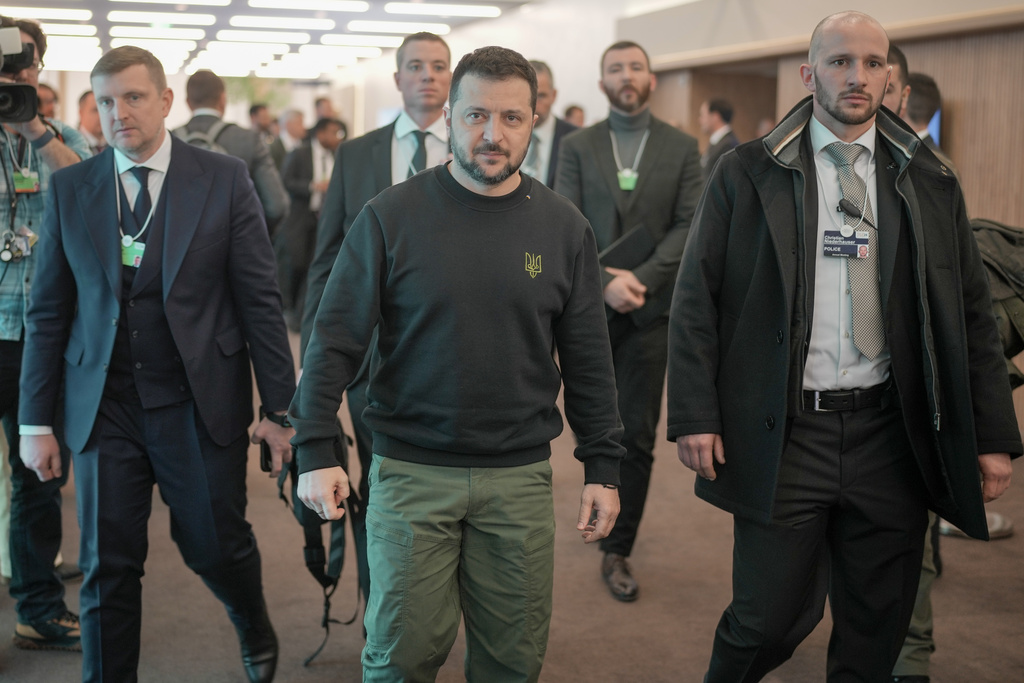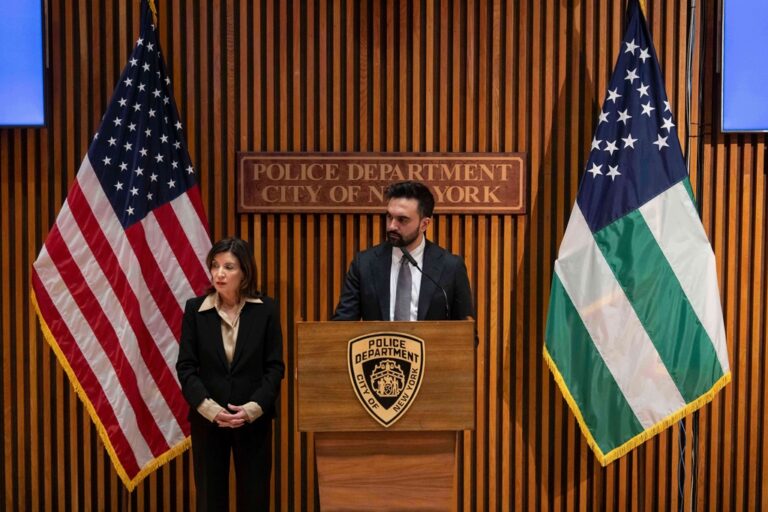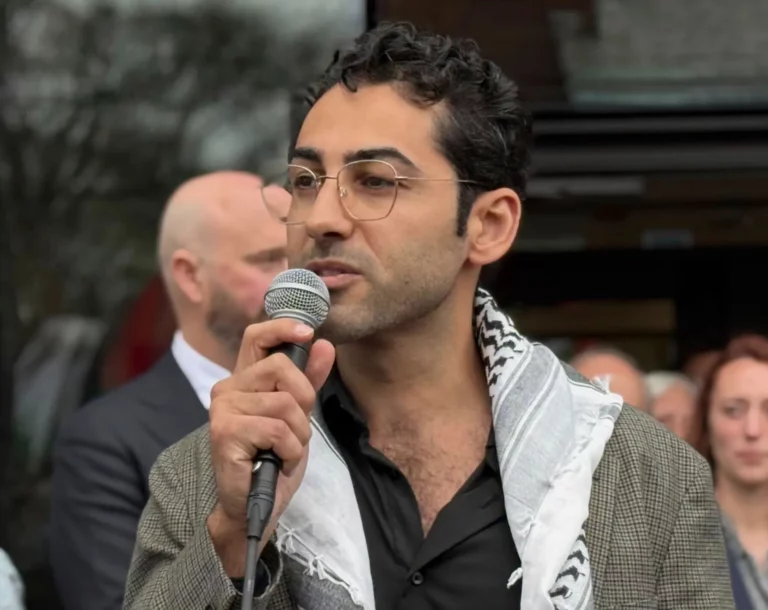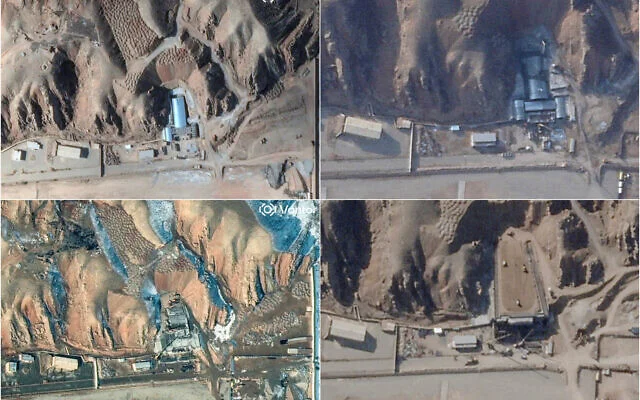Ukrainian President Volodymyr Zelenskyy huddled with corporate executives and world leaders in a frenzied first full day of the World Economic Forum’s annual meeting in the Swiss ski resort of Davos, where top officials from the United States, European Union, China, the Middle East and beyond spoke Tuesday about tackling conflict and embracing technology like artificial intelligence.
Zelenskyy is endeavoring to keep his country’s long and largely stalemated defense against Russia on the minds of political leaders, just as Israel’s war with Hamas, which passed the 100-day mark this week, has siphoned off much of the world’s attention and sparked concerns about a wider conflict in the Middle East.
“It is important that you stand with us, I thank you for your support. It is very important to be here, to boost investment in Ukraine and support our economy,” Zelenskyy said at an invitation-only “CEOs for Ukraine” session, according to his office.
It is Zelenskyy’s first trip to Davos as president after speaking by video in previous years, and — while surrounded by a large security contingent — he’s drawing the attention of media and others trying to grab a word from him.
Conversations with the prime ministers of Qatar and Jordan will bookend the day’s most visible events, with speeches by Chinese Premier Li Qiang, European Commission President Ursula von der Leyen and U.S. national security adviser Jake Sullivan in between.
Qatar’s prime minister, Sheikh Mohammed bin Abdulrahman Al Thani, said the concentration on the attacks on ships in the Red Sea by Yemen’s Houthi rebels — which have spurred retaliatory strikes by the U.S. and Britain — was “focusing on the symptoms and not treating the real issue” of Israel’s war on Hamas.
“We should focus on the main conflict in Gaza. And as soon as it’s defused, I believe everything else will be defused,” he said, adding that a two-state solution was required to end the conflict.
Sheikh Mohammed also warned a military confrontation “will not contain” the Houthi attacks.
“I think that what we have right now in the region is a recipe of escalation everywhere,” he added.
Li, the Chinese premier, focused on pitching the country as a place to invest, noting that “we are opening wide our embrace.” He said China’s economy is estimated to have grown about 5.2% last year, exceeding the target it had set of 5%.
China’s economy, for decades a leading engine of global expansion, has struggled since COVID-19 restrictions, with high youth unemployment and the implosion of its overbuilt property market.
Li gave veiled criticizism of U.S. restrictions on China’s ability to buy advanced computer chips used in everything from cellphones to washing machines.
“Technology’s achievements should be used to benefit all humankind and it should not be used as a method to limit, to suppress another country,” Li said.
Von der Leyen reiterated that the EU doesn’t want to break from Beijing — one of its most important trade partners — but ease the risks of relying too heavily on it because “we have issues when it comes to access to the market, when it comes to a level playing field, when it comes to economic security.”
She noted China’s export controls on metals used in computer chips, solar cells and more.
For the U.S., Sullivan said no when The Associated Press asked whether he would meet with China’s delegation as he headed into talks with Zelenskyy and U.S. Secretary of State Antony Blinken.
Zelenskyy, once reticent about leaving his war-torn country, has recently gone on a whirlwind tour to try to rally support for Ukraine’s cause against Russia amid donor fatigue in the West and concerns that former U.S. President Donald Trump — who touted having good relations with Russian President Vladimir Putin — might return to the White House next year following his commanding win Monday in the Iowa caucuses.
He hopes to parlay the high visibility of the event into a bully pulpit to showcase Ukraine’s pressing needs, and allies will be lining up: Corporate chiefs including JPMorgan Chase CEO Jamie Dimon and officials like von der Leyen learned in multiple gatherings what support and investment was needed to help Ukraine rebuild.
“It’s time for us, for Ukrainian companies, for international companies to rebuild (the) Ukrainian economy,” Maxim Timchenko, CEO of Ukrainian energy company DTEK said after the session. “To rely on ourselves. To build a future for Ukraine.”
In her speech, Von der Leyen painted an optimistic view of the war in Ukraine despite the stalemate on the battlefield. She said Russia has “lost half of its military capabilities,” while Ukraine regained half the ground it had originally lost early in the invasion.
A day earlier, Zelenskyy made a stop in Switzerland’s capital, Bern, where President Viola Amherd pledged her country would start working with Ukraine to help organize a “peace summit” for Ukraine.
The theme of the meeting in Davos is “rebuilding trust,” and it comes as that sentiment has been fraying globally: Wars in the Middle East and Europe have increasingly split the world into different camps.
While the geopolitical situation has oozed gloom, businesses appear more hopeful — in part from prospects that artificial intelligence can help boost productivity.
AI is a major topic at Davos, with a key talk by Microsoft CEO Satya Nadella — whose company has invested billions in ChatGPT maker OpenAI — among the sessions Tuesday.
Nadella, speaking at a Bloomberg News event ahead of his talk, indicated that issues surrounding OpenAI’s leadership have been resolved. The ChatGPT maker’s governance and relationship with Microsoft came into question last year after the startup’s board suddenly fired CEO Sam Altman, who was then swiftly reinstated.
“I’m comfortable, I have no issues with any structure” of the operating model at OpenAI, Nadella said. “What I would like is good governance and real stability.”
(AP)










